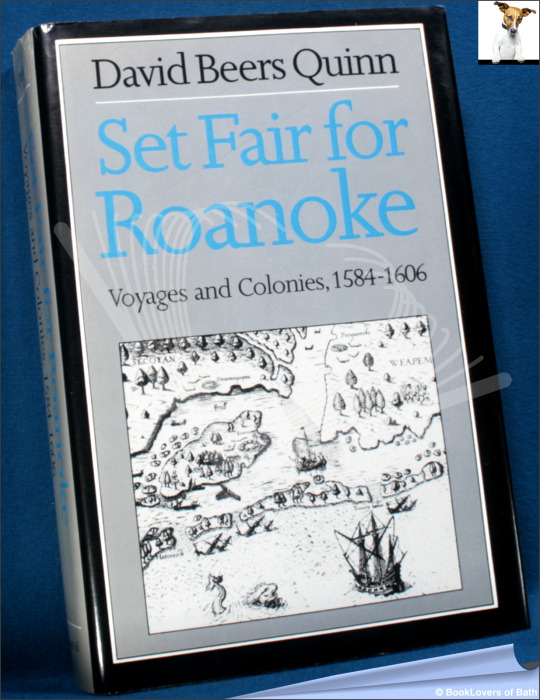#north american history
Text
Tribal Names
I don’t think many people, even some native people, are aware that the legal names of many tribes are actually not from the tribe.
Often the names came about because colonizers would ask one tribe "hey, what do you call those people over there?". then they would assign the name given to that tribe. so often the names were descriptions from unrelated tribes, or in more extreme cases, insults.
The Muscogee tribe got pretty lucky since the legal name was "creek" and it came from a different tribe going "oh, those are the people near the creek". which, is accurate enough, most creek settlements were placed along creeks. a famous one that is related to the Muscogee is the name "Cherokee". "Cherokee" is a Muscogee word meaning something along the lines of "people who don’t speak our language". Even this is pretty light compared to some names. some official tribal names translate to phrases like "dog eaters" or "lazy people".
This is why it’s not uncommon for tribes to start using older names. Muscogee comes from the term for our people "Mvskoke", and the tribe has made efforts to distance itself from the name "Creek". Although it is likely still the name you’ll hear most often.
#muscogee#mvskoke#native blogs#native american#indigenous blog#indigenous#native girls#indigenous history#muskogee#cherokee#oklahoma#native americans#tribal names#tribes#north american history#creek tribe
2K notes
·
View notes
Text
Time Travel Question 46: Early Modernish and Earlier
These Questions are the result of suggestions from the previous iteration.
This category may include suggestions made too late to fall into the correct earlier time grouping. Basically, I'd already moved on to human history, but I'd periodically get a pre-homin suggestion, hence the occasional random item waaay out of it's time period, rather than reopen the category.
In some cases a culture lasted a really long time and I grouped them by whether it was likely the later or earlier grouping made the most sense with the information I had. (Invention ofs tend to fall in an earlier grouping if it's still open. Ones that imply height of or just before something tend to get grouped later, but not always. Sometimes I'll split two different things from the same culture into different polls because they involve separate research goals or the like).
Please add new suggestions below if you have them for future consideration. All cultures and time periods welcome.
#Time Travel#Early Modern#Aztecs#Tenochtitlan#Versailles#Louis XIV#Thames Frost Fair#The Original Amber Room#Vauxhall Gardens#Potlatch#Indigenous History#Pacific Northwest History#The Amazon#South American History#North American History#Cascadia Earthquake#History of Food#Queen Elizabeth I#Tudor England#Kamehameha the Great#Hawaiʻi#Hawaiian History
103 notes
·
View notes
Text
In the 1750s, tensions between the British, the French, and Indigenous peoples over control of the Ohio Country in North America lead to the outbreak of a global war.
Full transcript
The French Canadian officer lay wounded in the Pennsylvania glen that in time would bear his name. The ground was still wet – it had rained all through the night – and his men had barely begun to cook their breakfast when the shots rang out. Perhaps he could still smell smoke from their campfires. Surely, he could smell gunpowder.
Ensign Joseph Coulon de Jumonville was thirty-five years old on this, his last morning. It was May 28, 1754.
Five days earlier, Jumonville had left Fort Duquesne, built at the Forks of the Ohio River near what is now Pittsburgh, and headed southeast with 35 mostly French-Canadian men. He carried a message for the commander of a Virginia regiment that he knew was nearby. The British and their colonists were to leave the area immediately, the message read. They were intruders in the colony of New France, and these lands belonged to His Most Christian Majesty, Louis XV.
#american history#north american history#Tanaghrisson#New France#Seven Years War#French and Indian War#Mingo
2 notes
·
View notes
Text
youtube
#martin luther king jr#videos#some more news#racism#history#black history#whitewashing#usa history#north american history#Youtube
4 notes
·
View notes
Text

To be fair, the United States had help from other countries like France in the revolutionary war. They couldn't have done this by themselves.
14 notes
·
View notes
Text
Wrapped up the last of the history books in the sequence:
This book is a good example of how dialectical materialism and its teological aspects warps history at one remove. It critiques Montezuma, Agustin de Iturbide, Antonio Lopez de Santa Anna, Benito Juarez, Porfirio Diaz, and others for not being all knowing supermen who missed that their actions were to blend a Leninist approach and a social-democratic goal.
At no point does Mr. Ruiz stop to consider that perhaps there was never a serious prospect of a ruler of Tenochtitlan or these other leaders of Mexico using foreign ideas that didn't have any measurable impact or reason to be followed until the Bolshevik Revolution and the internal contradiction behind 'the eternal 1500s for the Indigenous Mexicans, the worker's utopia for the Hispanics.'
For all that it's a good one-volume history of the Mexican state from the beginning in Indigenous time to 1990.
9/10
#lightdancer comments on history#mexican history#north american history#book is more than a little bit of cultural masochism#but if you had to make sense of someone like Santa Anna or the Mexican Revolution and its aftermath#your histories would be hard pressed to avoid that too
2 notes
·
View notes
Text
tw: antiblackness, historical shit:
•
•
•
The little things about being black is also having to almost collide with non-black people (usually white) on the sidewalk, cause they think I’m suppose to move over for them.
More black people need to talk about this, cause when I saw a black youtuber (Sunn m’Cheaux) bringing this up, I almost lost it (in a good way, cause I was thinking this wasn’t common. But IT IS!!!).
Being black is exhausting.
This also goes straight back to when black people were forced to move out of the way for white people, even if it meant almost getting hit by a vehicle in the streets. Yep. That’s that bullshit.
2 notes
·
View notes
Text
youtube
0 notes
Text
Set Fair for Roanoke: Voyages and Colonies, 1584-1606 :: David Beers Quinn
Set Fair for Roanoke: Voyages and Colonies, 1584-1606 :: David Beers Quinn

View On WordPress
#0-8078-1606-x#american indians#american voyages#books by david beers quinn#british colonial history#british colonialism#british colonies#cape rojo#discovery america#first edition books#fort raleigh#guayanilla bay#history america#history united states#north american history#north american indians#roanoke colonies#salmas bay#sir walter raleigh#south america history#verrazzanian sea#zuniga map
0 notes
Text
0 notes
Text

Feb 4th 1969 - XB-70A - Edwards Air Force Base
#North American Aviation#XB-70A#Valkyrie#Prototype aircraft#Vintage aviation#aviation history#supersonic bomber#research aircraft#aviation#aircraft#airplane
333 notes
·
View notes
Text
Beringia
One of the biggest and most taught misconceptions is that all Native American people traveled to the continent over the Bering strait that connected modern day Alaska to modern day Russia.
Now, it's undoubted that a number of people crossed the Lang bridge following herds of animals. However, it is also undoubted that many already resided in The Americas prior.
This theory was originally formed in the 1930s when a large number of clovis points were examined. This original theory dated the migration to 13,000 years ago. In the 1970s, this was pushed back to 16,000 years ago after further study. Linguists have since weighed in saying that the language diversity found in the Americas could have taken up to 50,000 years to form. Genetic tests also suggest that some tribes share genetic similarities to aboriginal Australians. The latest archeology findings show that man made tools were being used in Idaho as far back 18,000 years ago.
Some tribes have oral traditions that suggest indigenous people arrived in the Americas by boat. One Cherokee origin story believes the first people arrived on canoes. Fleeing from an island destroyed by natural disaster, 14 canoes set out, and only 7 made it to their new home. One of the Blackfoot creation stories says that the first man came floating in on a log. Many other tribes describe their people first coming from a great ocean or even from boats.
While I think there is a lot of research worth doing around the Bering strait, I'm not saying the theory is absolutely incorrect. I do believe that too much weight is put on it being the only explanation. Many people, even those who study history, still believe in the "13,000 years ago by the Bering strait" as the only explanation.
#native blogs#native american#indigenous#indigenous blog#indigenous history#muscogee#bering strait#beringia#native american history#native americans#north american history#history
0 notes
Text
Time Travel Question 34: Medievalish and Earlier 3
These Questions are the result of suggestions from the previous iteration.
This category may include suggestions made too late to fall into the correct earlier time grouping. Basically, I'd already moved on to human history, but I'd periodically get a pre-homin suggestion, hence the occasional random item waaay out of it's time period, rather than reopen the category.
In some cases a culture lasted a really long time and I grouped them by whether it was likely the later or earlier grouping made the most sense with the information I had. (Invention ofs tend to fall in an earlier grouping if it's still open. Ones that imply height of or just before something tend to get grouped later, but not always. Sometimes I'll split two different things from the same culture into different polls because they involve separate research goals or the like).
Please add new suggestions below if you have them for future consideration. All cultures and time periods welcome.
#Old English#Middle English#Linguistics#Vikings#North American History#Time Travel#Early Middle Ages#Indigenous History#Prester John#Middle Ages#Koran#Greenland#King Olaf#Arthuriana#Post Roman Britain#Heian Era Japan#Japanese History#Rapa Nui#Ammonites
129 notes
·
View notes
Text

North American F-82B "Twin Mustang" taxiing in the snow Click on the photo to see the whole picture.
➤➤ LEARN MORE: https://dronescapes.video/P82
#youtube#aircraft#P82#Twin Mustang#North American#aviation photography#history#airplane#aviation#dronescapes#military#documentary#ww2#wwii#aviation history
173 notes
·
View notes
Text

"I am an old woman now. The buffaloes and black-tail deer are gone, and our Indian ways are almost gone. Sometimes I find it hard to believe that I ever lived them. My little son grew up in the white man's school. He can read books, and he owns cattle and has a farm. He is a leader among our Hidatsa people, helping teach them to follow the white man's road.
He is kind to me. We no longer live in an earth lodge, but in a house with chimneys, and my son's wife cooks by a stove. But for me, I cannot forget our old ways. Often in summer I rise at daybreak and steal out to the corn fields, and as I hoe the corn I sing to it, as we did when I was young. No one cares for our corn songs now.
Sometimes in the evening I sit, looking out on the big Missouri. The sun sets, and dusk steals over the water. In the shadows I see again to see our Indian village, with smoke curling upward from the earth lodges, and in the river's roar I hear the yells of the warriors, and the laughter of little children of old.
It is but an old woman's dream. Then I see but shadows and hear only the roar of the river, and tears come into my eyes. Our Indian life, I know, is gone forever."
—Waheenee (Hidatsa) (North Dakota)
Remembering the Old West :: [h/t Native American Pride]
[Scott Horton]
2K notes
·
View notes
Text


A book that always inspired my love for photography, "The Neugents: Close to Home" by David M. Spear, a friend of my father's who photographed this family in rural Madison, NC on Tabacco Road. (my hometown)
#north carolina#david m spear#david spear#black and white photography#southern gothic#regional gothic#rural america#rural life#americana#americana aesthetic#american gothic#appalachian gothic#appalachia#appalachian mountains#the neugents close to home#north carolina history#country#gothic#film photography#dirtcore#swampgoth#vintage photos#north carolina photographers#photography
312 notes
·
View notes